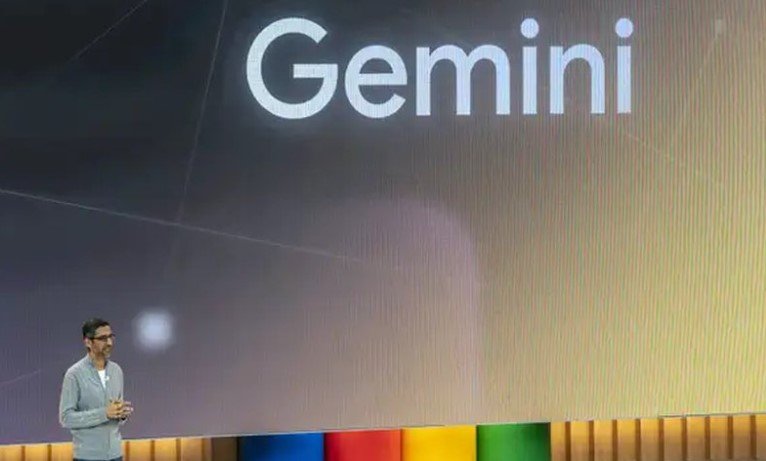Google has announced the launch of Gemini, its next-generation AI model that it hopes will take down ChatGPT, the powerful language model developed by OpenAI. Gemini is a multimodal foundation model that can handle text, images, audio, and video data and can be integrated with various tools and APIs. Google claims that Gemini is a significant advancement in natural language processing as well as other domains such as health, security, and productivity.

What is Gemini, and how does it work?
Gemini is Google’s latest AI model that is built on top of PaLM 2, the current model behind Google’s chatbot Bard and other features. Gemini is designed to be more scalable, adaptable, and collaborative than PaLM 2 and to accommodate future developments such as improved memory and planning. Gemini is also trained on a larger and more diverse dataset than PaLM 2, which includes web pages, books, images, videos, podcasts, and more.
Gemini is composed of different versions, each with different capabilities and sizes. The smallest version, Gemini Nano, is incorporated into Google’s Pixel 8 Pro smartphone and can generate text and images within apps like Google Docs and Sheets. The next version, Gemini Pro, is used to power Bard, Google’s AI assistant that can chat, write, and search for information. The largest version, Gemini Ultra, is still in development and will be used to launch Bard Advanced, a more sophisticated chatbot that can multitask and understand complex text.
Why is Gemini important, and what are its applications?
Gemini is Google’s answer to ChatGPT, the state-of-the-art language model created by OpenAI, a research organization backed by Microsoft. ChatGPT is a general-purpose AI system that can generate coherent and fluent text on any topic, given some input or prompt. ChatGPT has been used for various applications, such as writing essays, creating chatbots, composing music, and generating code.
However, ChatGPT has also been criticized for its ethical and social implications, such as its potential to spread misinformation, manipulate people, and violate privacy. ChatGPT is also limited by its focus on text data and its inability to handle other modalities such as images and audio.
Google hopes that Gemini will be able to compete with ChatGPT and surpass it in terms of performance, versatility, and safety. Gemini is not only a language model but also a multimodal model that can process and generate different types of data, such as images, audio, and video. Gemini can also be integrated with various tools and APIs, such as Google Workspace, Google Search, Google Photos, and YouTube, to provide more functionality and collaboration. Gemini is also being fine-tuned and rigorously tested for safety to ensure that it does not produce harmful or biased outputs.
Some of the applications of Gemini include:
- Duet AI is a feature that allows users to generate text and images within apps like Google Docs and Sheets to add depth and creativity to their ideas.
- Help Me Write: A feature that helps users write essays, proposals, and other documents by providing suggestions, feedback, and corrections.
- AI-integrated search: a feature that enhances Google Search with Gemini’s natural language understanding and generation capabilities to provide more relevant and personalized results.
- Med-Gemini: A version of Gemini that is trained on health research terms and medical knowledge and can be used for the diagnosis, treatment, and prevention of diseases.
- Sec-Gemini: A version of Gemini that is trained on cybersecurity terms and data and can be used for analysis, detection, and prevention of cyberattacks.
When will Gemini be available, and how can users access it?
Gemini is still in the training and testing phase, and Google has not announced a specific date for its launch. However, Google has been giving out early demos of Gemini to some of its cloud customers and business partners and has received positive feedback. Google expects to release Gemini to the public in the first quarter of 2024 and to make it available in different sizes and versions, depending on the user’s needs and preferences.
Users will be able to access Gemini through various platforms and products, such as Google Workspace, Google Search, Google Photos, YouTube, Pixel 8 Pro, and Bard. Users will also be able to customize Gemini’s settings, such as its tone, style, and personality, to suit their preferences and goals. Users will also be able to interact with Gemini through text, voice, or gestures, depending on the device and the modality.






